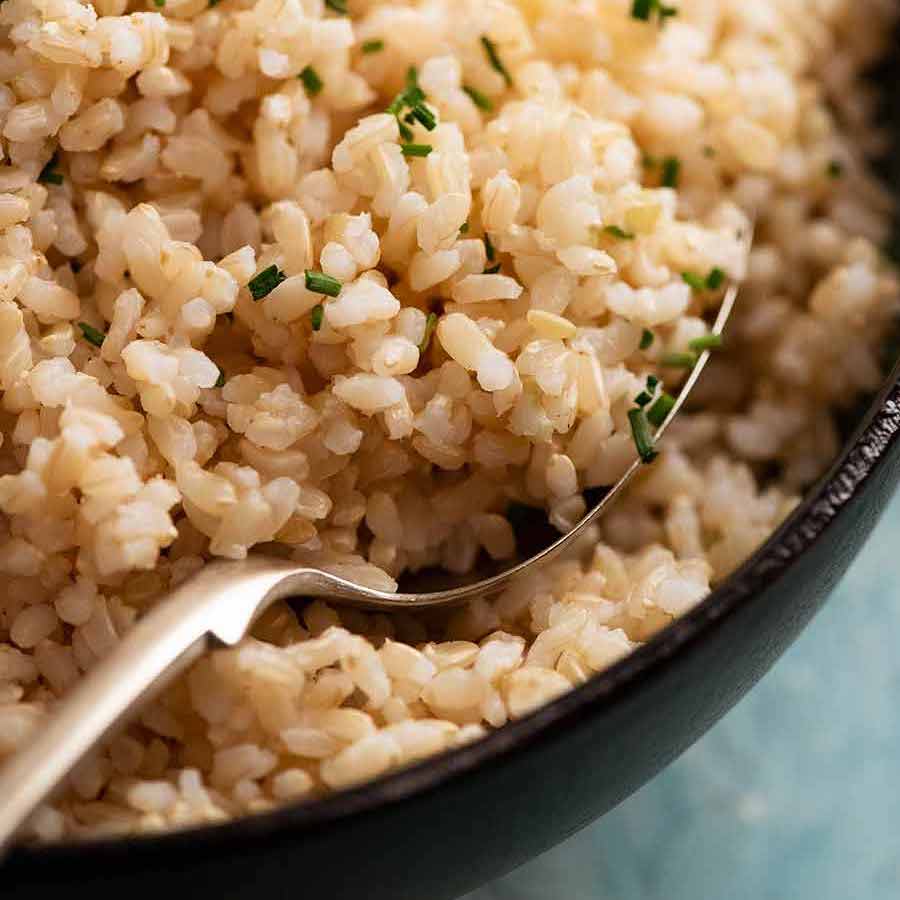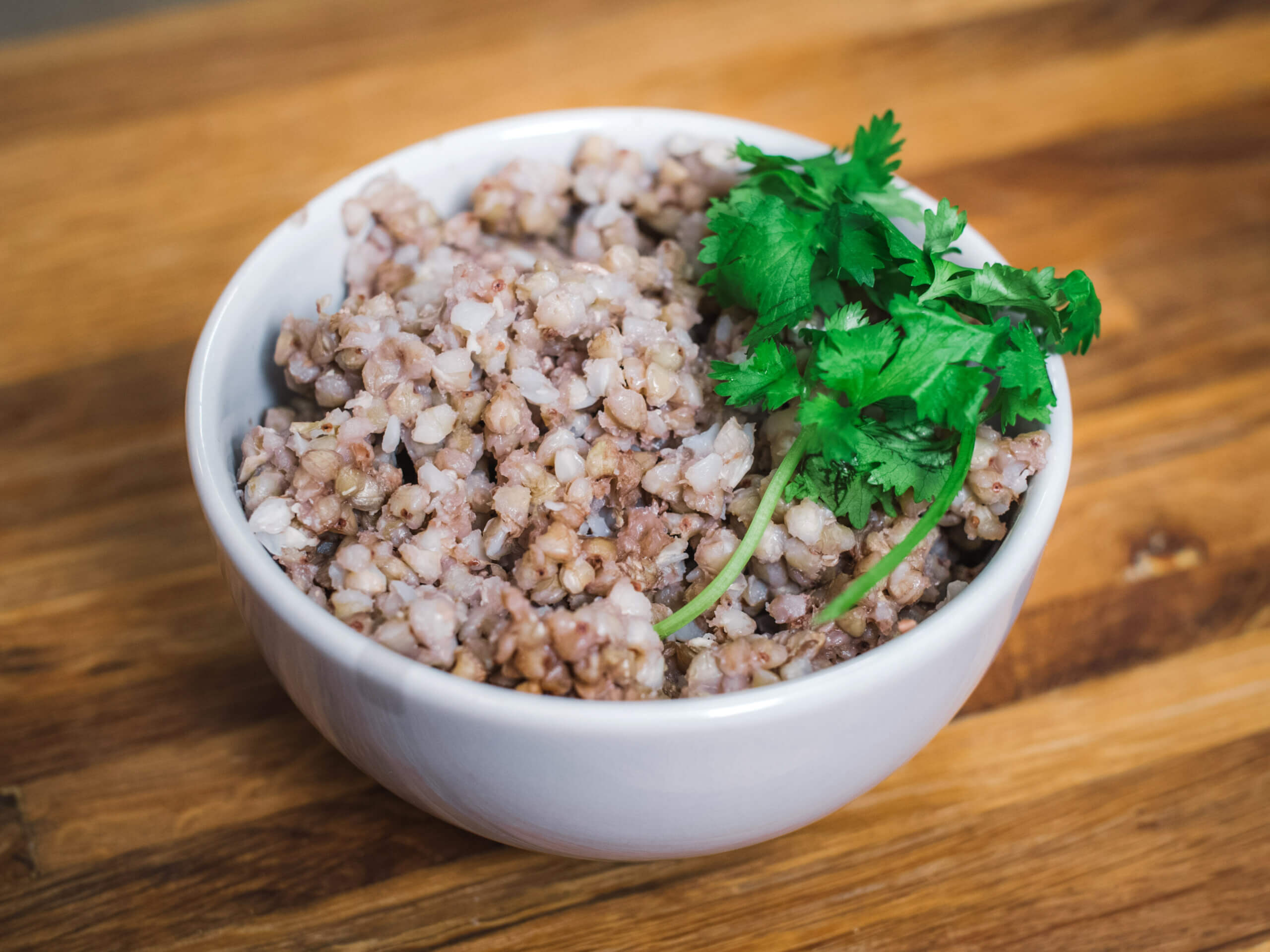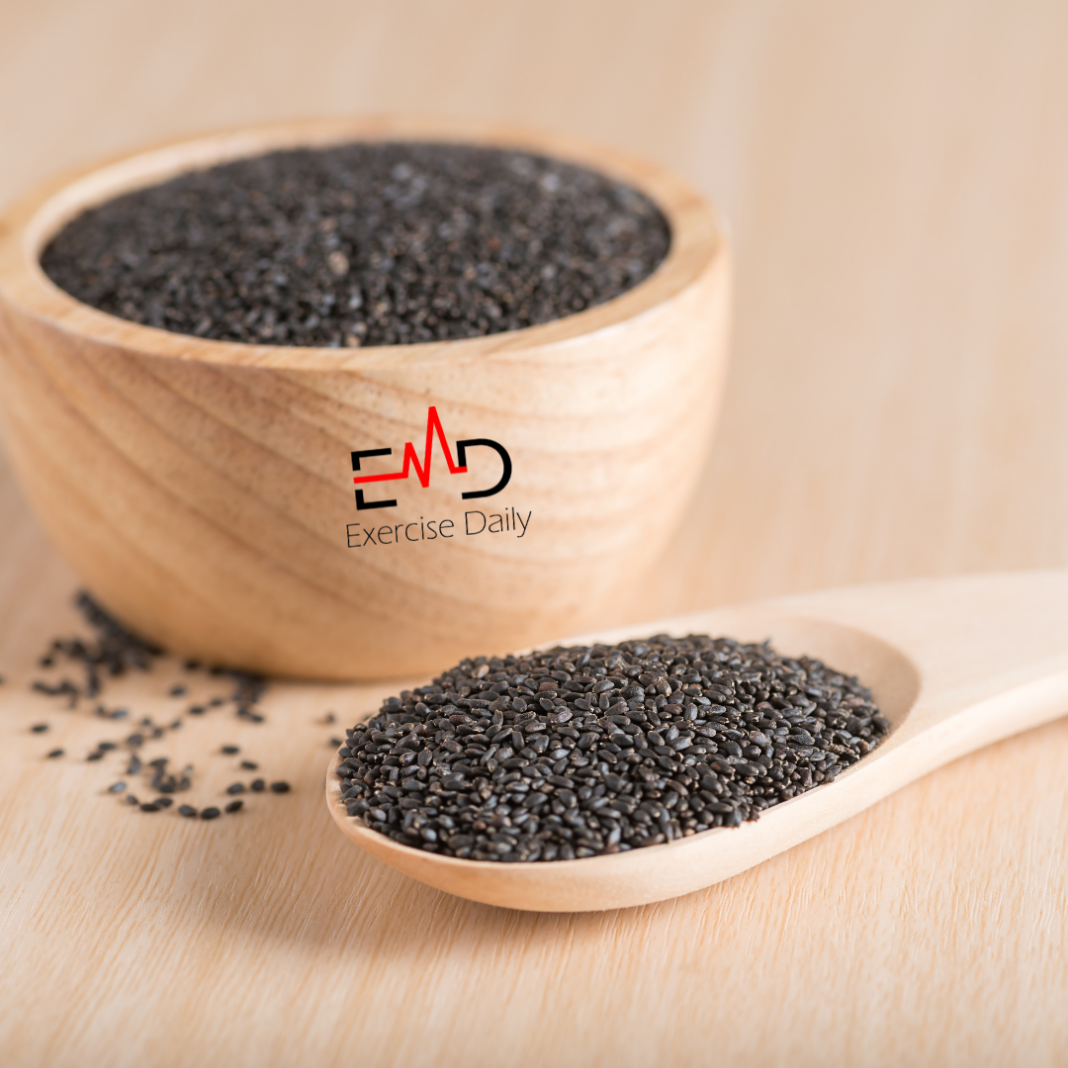Exercise daily – Gluten is a protein found in wheat and related grains. Gluten is typically difficult to digest and can cause serious health problems for those patients with celiac disease.
Flax seeds are a rich source of fiber, protein, and omega-3 fatty acids. This makes them an important part of a healthy diet and gluten-free diet.
Flax Seeds are common for many years as a natural remedy for many health conditions. They are also used to make bread, crackers, and cereals. For example, the omega-3 fatty acids in flax seeds provide heart protection and reduce inflammation in the body. Is flax seed gluten-free? Let’s find out in this post.
Is Flax Seed a Grain?
Flax seeds are a type of seed that is mostly used in baking. Flax seeds are small, round, and brown. It can be found worldwide because it grows very quickly and can be harvested anytime during its life cycle. Flax seeds are not a source of gluten because they do not contain the protein that can cause health problems for celiac disease.
Flax seed also provides fiber that helps lower cholesterol levels and regulate blood sugar levels in the body. Ground flax seeds are easy to digest than whole flax seeds.

Is Flax Seed Gluten Free?
Yes, flax seeds are free from gluten, and you can easily consume them without worrying about their side effects of it. If you are sensitive to gluten, you can also try these seeds without worrying.
If you are looking for gluten-free food, you must check the label of the food before buying.
Is flax seed good for you? (benefits):
Flax seeds contain lignin that may benefit various conditions, such as cancer, heart disease, and arthritis. They are also rich in protein and fiber. Flaxseeds contain 75 and 800 times the amount of lignan in other plants.
The following are the health benefits of flax seeds:
Lowers blood cholesterol levels:
Flax seeds can help lower blood cholesterol levels and reduce the risk of heart disease. Flax seeds contain omega-3 fatty acids, which are essential for the heart. It also contains antioxidants, vitamins, and minerals.
Helps lower blood pressure:
The benefits of eating seeds are not just limited to their nutritional value. They can also help improve digestion and blood sugar regulation for people with diabetes.
For skin health:
Some people use flaxseed oil topically on their skin to reduce inflammation or acne flare-ups. They can also reduce the risk of cancer.
For weight loss:
Flaxseeds also contain fiber, which can help with weight loss by keeping you full for longer periods and regulating your blood sugar levels. Seeds contain protein, zinc, iron, magnesium, vitamins B1 and B5, and selenium. They are best for persons suffering from bloating.
For sports and fitness:
One study concludes that it prevents muscle regeneration through ALA-mediated action. So we can eat these after exercise for recovery. It is a protein powerhouse. We can use this instead of protein powder or can mix it with protein powder. It is great for muscle building.
List of other gluten-free seeds:
The following are five of the best seeds that are easy to grow and can provide your family with many health benefits.
-
Quinoa
It is a staple grain high in protein, fiber, and calcium. Quinoa can be cooked in various ways, such as boiling, steaming, or baking. It should always be rinsed before cooking and should not be soaked in water.

2. Brown rice:
It is a cereal grain commonly eaten in the form of white rice or brown rice. Brown rice has a slightly nutty flavor and rich texture. We can use this to make different dishes, including paella and risotto. Brown rice is an important part of many people’s diets because it is high in fiber, protein, and B vitamins.

3. Millet:
It is not only for birds but very beneficial for humans also. Millet contains 3.5g of protein and is a type of cereal grain.
It is mostly grown in the Mediterranean region and North Africa. Millet has been around for about 10,000 years.
Millet is a nutritious grain that can be eaten as a breakfast cereal or cooked into porridge or bread. It can be ground into flour for baking or consumed whole, like rice or quinoa.

4. Buckwheat:
Buckwheat is not a cereal grain but a seed that we can grind to make pancakes, waffles, soba noodles, bread, etc. It contains more protein than wheat and less gluten than wheat. It can be eaten raw or cooked as a whole grain in its natural form.

5. Amaranth:
These grains can provide a significant food source for humans in times of need. Amaranth is also a type of plant that can grow up very tall.
We can harvest the leaves twice per year and produce over 100 pounds of biomass per acre annually.

Best Flax Seeds Products that EDM recommends:
The following are the products that EDM recommends:
SPICE TRAIN, Organic Flax Seed with Omega3:
$9.99
Description:
Flax Seeds contain omega-3 fatty acids, lignans, and fiber they contain. These are brown and have a nutty flavor. The grounded form is easy to digest than the whole form.
Pros:
- It is USDA certified and 100% organic.
- It is NON-GMO.
- It is affordable.
Cons:
It is not in grounded form.
Nature Made Extra Strength Flaxseed Oil 1400 mg:
Description:
It is a dietary supplement that supports heart health. It is perfect for adults. This is the brand that you can trust.
Pros:
- It is gluten-free.
- It is in form of soft gels.
- It is good for curing pain in the body.
Cons:
It is not affordable.
NOW Supplements Organic Flax Seed Oil:
$19.25
Description:
You can take one to two tablespoons of oil daily. You can put oil on salad, sauces, and a protein shake. To protect this product from spoilage you should put this in the refrigerator.
Pros:
- It is cold-pressed.
- It is unrefined.
Cons:
It is a little bit expensive.
Is Flax Seed Gluten Free? FAQs:
The following are the frequent question asked:
1. Is Flaxseed a source of omega-3 fatty acids?
Flaxseed is a rich source of omega-3 fatty acids. The seeds are mostly found in the hulls of the plant and can be ground into a powder. Flaxseed can also be used as a substitute for eggs, milk, and meat in vegetarian dishes.
Flaxseed is an excellent source of omega-3 fatty acids that can help reduce inflammation and prevent chronic diseases such as diabetes, heart disease, cancer, arthritis, and Alzheimer’s disease.
The health benefits of flaxseed are numerous. It provides fiber to help lower cholesterol levels and improve digestion by preventing constipation from its soluble fiber content. It contains antioxidants that protect the cells from oxidative damage caused by free radicals.
2. What is a Flax Seed, and does it contains gluten?
Gluten is a protein found in different flours, a major component of the dough that makes bread and baked goods.
A flax seed is nothing more than a small seed. It has been famous for thousands of years as a healthy food. It’s rich in omega-3 fatty acids, dietary fiber, and vitamins B1, B2, and E.
3. What Are the Benefits of Eating Flax Seed on a Gluten-Free Diet?
Flax seed contains omega-3 fatty acids, a healthy option for the body. A gluten-free diet is one of the many diets that require people to avoid gluten as a protein source. However, if you cannot do so, you can still get all the benefits of flax seed by grinding it and adding it to your food.
Gluten-free diets can be difficult because they often require people to change their entire diet or eliminate certain foods. This doesn’t have to be the case with flax seed because you can still enjoy all the benefits of it even if you don’t eat it in its raw form.
4. Can flax seeds reduce tummy fat?
Flax seeds can help you lose weight because they contain soluble fiber, which keeps your stomach full for longer. They won’t increase blood sugar levels like white bread or pasta would do because they have a low glycemic index.
5. What Are The Best Ways to Add Flaxseeds to Your Daily Life?
Flaxseeds are a great source of fiber and omega-3 fatty acids. They are also high in protein, making them a healthy addition to your diet.
There are many different ways to add flaxseeds into your daily life. Add them to your morning smoothie and oatmeal or baked goods like muffins or bread. You can also eat them as is with water or milk.
The best way to get the most out of flaxseeds is by grinding them into a meal replacement powder and adding it to water or milk before you drink it.
Conclusion:
It is important to note that the safety of flax seed is dependent on how it is processed. The seed can be ground up and used as flour or mixed with other ingredients to make bread, cookies, and other baked goods.
People should avoid flax seeds if they are allergic to them. The same goes for pregnant women and those who suffer from certain medical conditions like celiac disease or Crohn’s disease. Is Flax Seed Gluten Free? We answered this question in this article.
You can ask us in the comment section if you have any queries regarding flax seeds.



